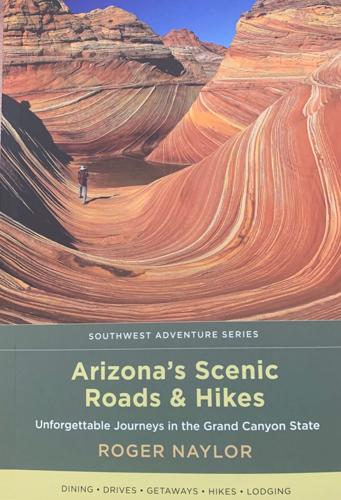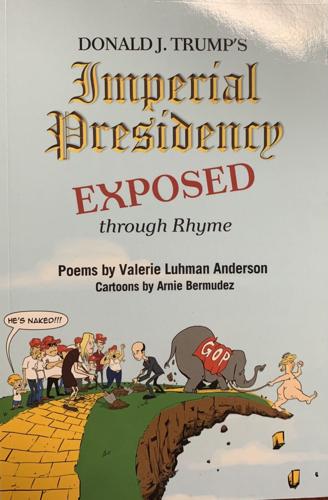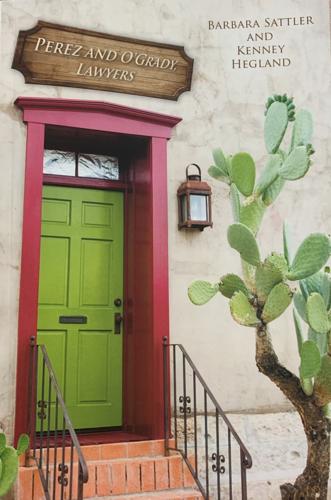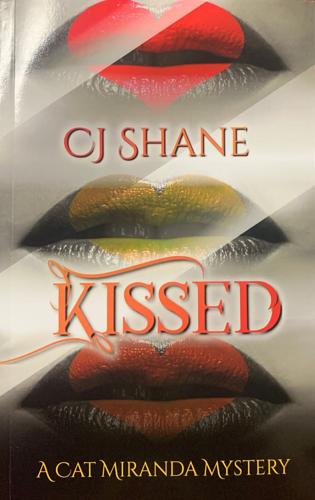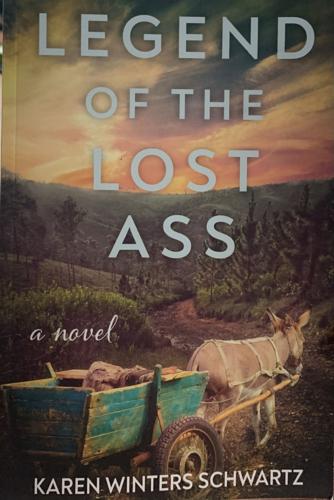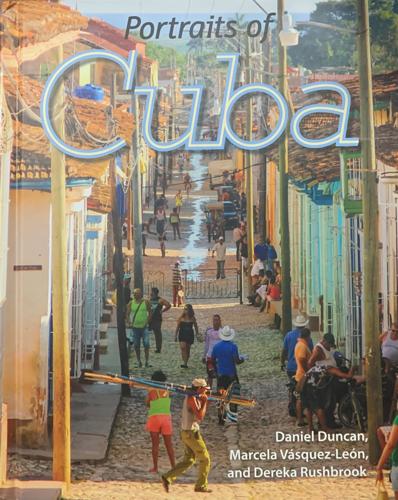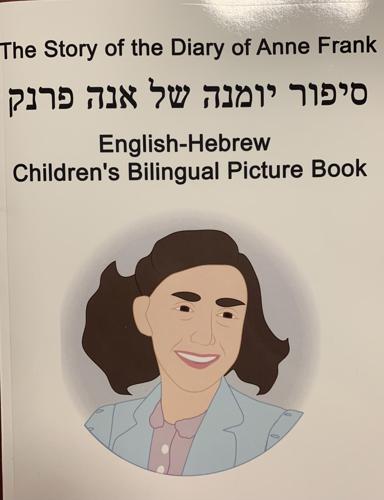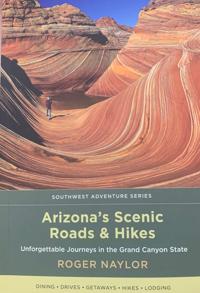“Arizona’s Scenic Roads and Hikes: Unforgettable Journeys in the Grand Canyon State”
By Roger Naylor (University of New Mexico Press). $21.95 paperback; $9.99 e-book
The timing couldn’t be better to pick up this engaging new travel book on driving and hiking in our beloved state. While you’re still in COVID lockdown, read it and drool. When you’ve had your shots, and restrictions loosen, throw it, your boots and hat (and plenty of water) into your ride, and launch into “Unforgettable Journeys.”
Roger Naylor is clearly fond of Arizona. Writing that 40 years ago he began exploring the state because he was “swoomy in love with everything” he saw, he advanced through freelance writing about it to his current status as widely published “Arizona travel writer.” This volume, on the state’s scenic roads and highways, sparkles with his enthusiastic appreciation of its vistas, as well as trademark quirky prose and personal anecdotes. Writing about the Navajo Nation’s “Flat Mesa Rock” Scenic Road, for example, Naylor describes “rumpled clay hills seamed with color,” and then relates what has to have been a terrifying, unstoppable slide down a wet, clayey hill, where he became “gravity’s girlfriend. … When we stumble on an adventure,” he concludes, “enjoy the ride and try not to break your neck.”
This is a detailed, hands-on travel guide to each of Arizona’s 27 state-designated highways, along with hikes not to miss, eateries to stop in at, and places to lay your head. Use it to plan your After Times.
— Christine Wald-Hopkins
“Donald J. Trump’s Imperial Presidency Exposed through Rhyme”
Poems by Valerie Luhman Anderson; cartoons by Arnie Bermudez (Wheatmark). $10.95
The election has passed, the months of denial have imploded, the insurrection’s been incited, the Capitol ransacked, the dead buried, the inauguration flouted, the impeachment dispatched, and the bullet dodged. Does anything remain to be said? In a word, yes. Lest we forget.
OK, “Donald J. Trump’s Imperial Presidency Exposed through Rhyme” is not exactly an in-depth political analysis, nor is it soaring verse. But it entertains and serves a historic purpose. It lambastes the president’s behavior in poems based on real-time media reports. For example, Anderson concludes “A Prediction?” — after denouncing Trump’s pardons of Bannon, Manafort, Gates, Stone and Flynn — with “And then there’s Ivanka and Eric and Don,/ Do pardons extends to the kin of the Con?” To Trump’s attack on AOC, Ilhan Omar, Ayanna Presley and Rashida Tlaib, Anderson writes, “Trumpty Dumpty, our racist Prez,/ …wants members of Congress — four ‘second-class’ beings,/ To go back to their countries; whatever that means!”’
The poems, complemented by cartoons by Tucson Citizen and Tucson Weekly cartoonist Arnie Bermudez, cover events up through the 2020 election. You can bet Anderson’s rhyme-writin’ fingers have continued twitching wildly between then and now.
— Christine Wald-Hopkins
“Pérez and O’Grady, Lawyers”
By Barbara Sattler and Kenney Hegland (Outskirts Press). $16 paperback; $9.99 e-book
When first we see Lucy Wagner, central character in this novel by law couple Barbara Sattler and Kenney Hegland, she is so frantic for drugs she trades a cherished ruby necklace for 120 milligrams of morphine. When next we see her, she’s two years clean and interviewing for a law firm job. She’s passed the bar exam but needs to pass character and fitness to be accepted into the bar.
The action in this slim book is driven by Lucy’s striving to learn the work of the firm, resisting the allure of drugs, and repairing a damaged romantic relationship; along with the young, two-person Tucson law firm finding its own place in the community.
In many ways, “Perez and O’Grady, Lawyers” pays homage to the profession of law as practiced in Tucson. Sattler has been a defense attorney and judge and Hegland was a law professor, so they had a comprehensive view of it. As Sattler has in her previous novels, this book pulls back the curtain; readers can see the calculus behind lawyers’ actions, their training, philosophies, machinations, protocols. It critiques the bad guys, but celebrates the good — the hardworking, collegial defenders; pro-bono work in the community; the legal options for drug convictions; opportunities offered to veterans. And the authors have Lucy make a gentle, persuasive argument for end-of-life family discussions and arrangements.
Hegland died shortly after “Perez and O’Grady, Lawyers” was completed. All proceeds from the sale of the book go to the Kenney F. Hegland Scholarship Fund, James E. Rogers School of Law, University of Arizona.
— Christine Wald-Hopkins
“Kissed: A Cat Miranda Mystery”
By C.J. Shane (Rope’s End Publishing). $19.99 hardcover, $12.99 paperback, $4.99 Kindle
Tucson writer C.J. Shane, author of the Letty Valdez private investigator suspense series, introduces a new, sassy, and smart-as-a-whip amateur sleuth with this latest novel. When Cat Miranda moves back to her hometown to take charge of her late brother’s art gallery, she discovers passions simmering beneath the placid surface of picturesque Bisbee that bubble up in unanticipated ways. The witty and seductively attractive art historian from England who turns up on her doorstep, for instance, takes her by surprise. So does the local interest in “Kissed,” a painting her brother acquired from an artist who has mysteriously disappeared. Most surprising of all is the discovery of a dead body, mummifying behind the gallery wall. It’s complicated. As Cat’s flirtation with her British visitor heats up, inexplicable goings-on relating to the missing artist take a decidedly deadly turn in this lively novel of romantic suspense. Fans of Letty Valdez will be pleased to note that the Tucson detective makes an (off-stage) appearance in Cat Miranda’s debut outing.
— Helene Woodhams
“Legend of the Lost Ass”
By Karen Winters Schwartz (Red Adept Publishing, LLC). $14.99; $5.99 Kindle
Two journeys, occurring 70 years apart, play out simultaneously in this novel about family, old debts, and love lost and found. At its heart is Miss Mango, a tractor that the elderly Ernesto wants delivered from Texas to Belize, to the family that he hasn’t seen since he left home in 1949. The unlikely couriers are Colin, an obsessive-compulsive, agoraphobic novelist, and Ernesto’s grand-niece, Luci. Complete strangers when they initially connect via a random text message, Colin and Luci are skeptical about each other at their first meeting, but as they make their way south on the bright orange Kubota their feelings evolve. The story of their trek is interwoven with the account of Ernesto’s 1949 flight from Belize to Texas with his brother’s burro — the lost ass of the title — and together these journeys underscore the redemptive impact of companionship, familial ties, and moving beyond the past. Karen Winters Schwartz is a writer and mental health advocate who divides her time between Green Valley and a small village in Belize.
— Helene Woodhams
“Portraits of Cuba”
By Daniel Duncan, Marcela Vásquez-León and Dereka Rushbrook (University of Florida Press). $34.95
A PBS documentary photographer and two University of Arizona associate professors teamed up to produce an absorbing study of contemporary Cuba that offers a new perspective on the island nation. Short on resources and threatened by climate change, Cuba continues to live in the shadow of the 60-year-old, U.S.-imposed blockade, but it boasts a resilient population that’s learned to roll with complex circumstances and, in many ways, rise above them. Vivid photography by Duncan, known for his work on public television’s “In the Americas with David Yetman” and “The Desert Speaks,” captures a world steeped in tradition but finding its unique way forward. Shiny American cars that were new more than half a century ago line the streets, their windows mirroring bustling Havana streetscapes awash in a chaos of color; the mixture of architecture, from colonial days through the Soviet period, accommodate a new age of entrepreneurship; the arts flourish, vibrant and outspoken. Of particular interest are his striking portraits of Cubans going about their everyday lives. Expert commentary by Vásquez-León (director of the Center for Latin American Studies) and Rushbrook (director of the Study Abroad Program, Contemporary Cuba) explores the island’s history from colonial times through the Revolution and El Bloqueo, providing valuable insight into modern Cuba’s movement toward its own sort of democracy. Armchair travelers will revel in this brilliant collaboration.
— Helene Woodhams
“The Story of the Diary of Anne Frank: English-Hebrew Children’s Bilingual Picture Book”
By Richard Carlson, illustrations by Suzanne Carlson (Published by the author). $14.99
The deeply moving Anne Frank story is an important one for everyone to hear. But, when even adults find the inhumanity of Nazi repression incomprehensible, how can a child be expected to take it in? Tucson author Richard Carlson understands this, and his retelling of Anne Frank’s story is sensitive and accessible to young audiences without oversimplifying or talking down to them. He conveys big concepts with kid-friendly vocabulary, describes dramatic events in a factual, and not overly emotional way, and recognizes the kind of information that a young reader will find useful. For instance, it is helpful to a small child to be told what a diary is, and to know that Anne liked school, where she was encouraged to write. Thoughtful and expertly rendered illustrations by Suzanne Carlson are a perfect enhancement. Children experiencing pandemic living may relate to the isolation of the Secret Annex. This bilingual (English and Hebrew) picture book was published in November — Holocaust Remembrance Month — and it is a meaningful tribute. Richard Carlson is an author of children’s books and coming-of-age romances; Suzanne Carlson is an illustrator and artist who works in a variety of media.
— Helene Woodhams


